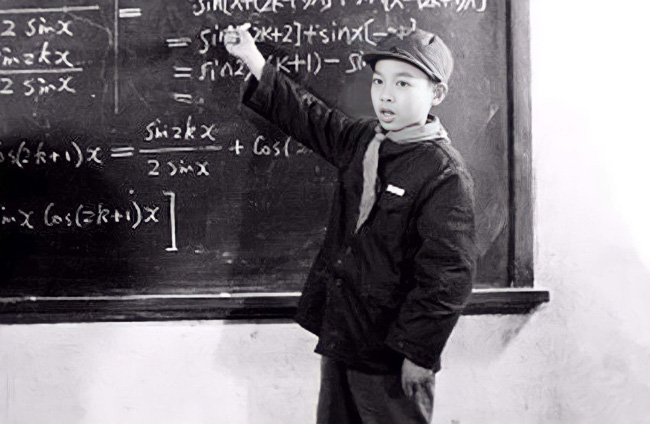
The Child Prodigy Who Entered University at 11 and Lost His Future Due to Low EQ: A Life That Now Draws Only Regretful Shakes of the Head
The Child Prodigy Who Entered University at 11 and Lost His Future Due to Low EQ: A Life That Now Draws Only Regretful Shakes of the Head
Being academically gifted means little if emotional intelligence is lacking.
Emotional intelligence (EQ) is a crucial factor that enables individuals to understand themselves and interact effectively with others. No matter how intelligent someone may be, the absence of EQ often undermines long-term success. The story of Tạ Ngạn Ba, a child prodigy who entered university at the age of 11, stands as a cautionary example.
Born into an academic family in Hunan, China, with both parents working as university professors, Tạ Ngạn Ba was sent to live with his grandmother in the countryside due to his parents' busy schedules. When he returned to the city at age five, his extraordinary academic abilities quickly emerged—he had an exceptional memory, excelled in advanced mathematics, and by fifth grade was already tackling topics like calculus and analytic geometry. At just 11 years old, he became the youngest student ever admitted to the University of Science and Technology of China (USTC), completing his undergraduate studies in only three years and earning a master’s degree at 18. The future seemed filled with promise—but that’s when the real challenges began.
Despite his exceptionally high IQ, Tạ Ngạn Ba struggled severely with social interactions. He spoke awkwardly, had difficulty connecting with others, and lacked emotional maturity. Being placed in an environment surrounded by adults, where relationships extended beyond academics, left him lost and disconnected. While pursuing his PhD in the United States, he was initially supported by a female Chinese professor who treated him like her own son. However, out of admiration for Professor Anderson, Tạ Ngạn Ba abruptly abandoned his mentor without notice and submitted his dissertation draft to Anderson instead. It was a betrayal that deeply hurt the person who had nurtured and guided him.
Unfortunately for Tạ Ngạn Ba, Anderson rejected his proposal. While the stated reason was "Your English is too poor," the underlying issue was that his thesis directly contradicted Anderson's theoretical views. Determined not to accept failure, Tạ Ngạn Ba studied English intensively, earned a second master’s degree in literature, revised his thesis, and resubmitted it to Anderson—only to be rejected again, this time citing “institutional concerns.” Having never experienced serious rejection before, this refusal dealt a heavy blow to his ego, which had been reinforced since childhood by praise and privilege.
In a moment of emotional instability, he went to Anderson’s home late at night to confront him. When Tạ Ngạn Ba reached into his pocket, Anderson’s family, fearing he might be armed, panicked—escalating the situation. Ultimately, USTC had to send staff to the U.S. to bring him back. Once celebrated as a prodigy, Tạ Ngạn Ba returned to China to live a quiet life as a regular physics lecturer with only a master’s degree, closing the door on a once-promising academic future.
Despite his intelligence, Tạ Ngạn Ba lacked empathy. He believed he was always right, that others should yield to him, accept him, and had no right to reject him. He felt no remorse in abandoning a mentor who had supported him, but could not accept rejection from someone he idolized. This is a classic sign of low EQ—an inability to see from others' perspectives, to understand emotions, expectations, or boundaries.
In the classroom, students often described him as having a "Mona Lisa smile"—part gentle, part distant, sometimes even unsettling. Some believed he had psychological issues, while others felt he silently looked down on his students, as if they were beneath him.
Today, Tạ Ngạn Ba's life evokes deep regret. A rare genius who could have gone further than most instead failed because he lacked essential life skills—empathy, adaptability, and emotional maturity. His story is not unique among prodigies. Many children with exceptional IQs are celebrated and admired, but without emotional development, they often struggle to integrate into society and sustain personal or professional growth.
Intelligence is not the same as wisdom. Low EQ leads to misunderstandings, emotional outbursts, arrogance, and most importantly, an inability to maintain relationships—an essential part of any career path. For this reason, when nurturing talent, whether in ourselves or in children, it is vital not to focus solely on academic knowledge. Teaching how to live, love, empathize, and listen is what builds a well-rounded person. IQ may help you go fast, but EQ determines how far and how well you’ll travel through life.
News in the same category


Doctors Warn: This Common Way of Eating Boiled Eggs Can Clog Your Arteries

2 Common Vegetables That Can Harbor Parasites

The 'Vitamin C King' of the Vegetable World

Avoid Swimming If You Spot 'Square Waves'

3 Green Vegetables Called the “King” of Sto.mach Protection

Why You Should Not Bring Seeds on a Plane: A Detailed Explanation

10 Powerful Reasons a Simple Smile Can Change Your Life

3 Common Mistakes in Storing Watermelon During Summer

When Buying Oysters, Avoid These 3 Types

Woman Suddenly Suffers Kid.ney Failure After a Meal

Why Dogs and Cats Often Hate Each Other—Most People Don’t Know This

4 Morning Habits That Increase Str.oke Risk—Avoid Them at Any Age

Smart Shoppers Avoid These 3 Types of Fish at the Market

Not a snake, this is the "kil.ler" that can crawl out of your air conditioner

Doctors Discovered 6 Morning Habits Shared by Most Can.cer Patients

Why do women grow a lot of hair on their fingers?

20 Signs of Can.cer That Women Often Ignore

4 things you do in the morning that bring you closer to a str.oke

Garlic Is Healthy for Most But for These 4 Groups of People, It Can Be Dangerously Toxic
News Post

Doctor Urges 4 Actions to Protect Your Body’s "Blo.od Filter"

6 Smart Tips for Choosing Quality Honey Sellers Don’t Want You to Know

Can overly hot baths harm your heart and circulation?

7 signs of brain c.a.ncer that are easily confused with other diseases

4 Things to Avoid After 5 PM to Lower Your Risk of Stro.ke

Doctors Warn: This Common Way of Eating Boiled Eggs Can Clog Your Arteries

Blanch Bones First or Simmer Directly?

2 Common Vegetables That Can Harbor Parasites

The 'Vitamin C King' of the Vegetable World

Avoid Swimming If You Spot 'Square Waves'

3 Green Vegetables Called the “King” of Sto.mach Protection

Why You Should Not Bring Seeds on a Plane: A Detailed Explanation

Bladder Ca.ncer: Symptoms You Shouldn’t Ignore

4 Healing Drinks to Prevent and Dissolve Kidney Stones

10 Powerful Reasons a Simple Smile Can Change Your Life

The Surprising Benefits of Donating Bl.o.od

5 types of vegetables and fruits help cool the liver and effectively lower liver enzymes

Top vegetable to help reduce visceral fat extremely effectively, nutritionist reveals 4 more easy ways to lose weight

Woman Sudden Kidney Failure After Meal: Doctor Says “This Vegetable Is Poisonous… You Shouldn’t Eat It”
